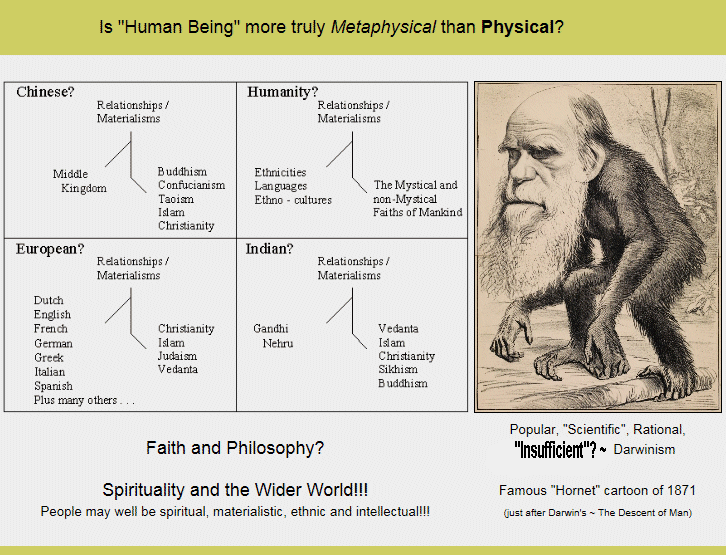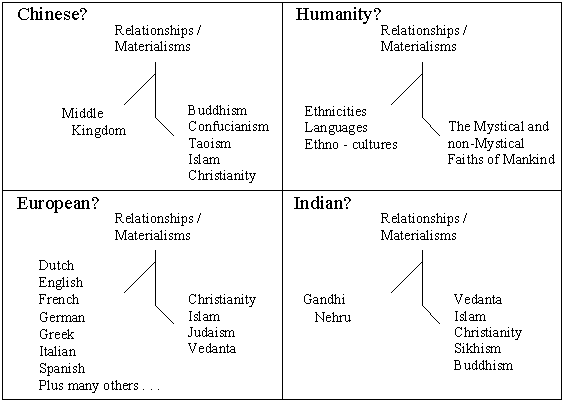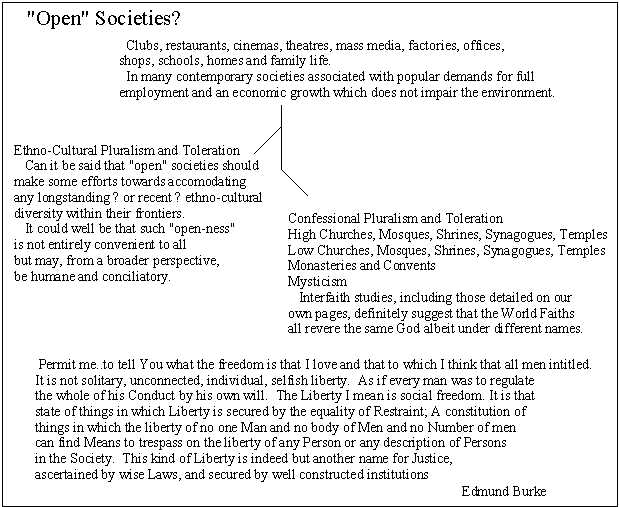Richard Dawkins
quotations and quotes

"There is an anaesthetic of familiarity, a sedative of ordinariness which dulls the senses and hides the wonder of existence. For those of us not gifted in poetry, it is at least worth while from time to time making an effort to shake off the anaesthetic. What is the best way of countering the sluggish habitutation brought about by our gradual crawl from babyhood? We can't actually fly to another planet. But we can recapture that sense of having just tumbled out to life on a new world by looking at our own world in unfamiliar ways."
Richard Dawkins (Unweaving the Rainbow: Science, Delusion and the Appetite for Wonder)

"It has become almost a cliche to remark that nobody boasts of ignorance of literature, but it is socially acceptable to boast ignorance of science and proudly claim incompetence in mathematics."
Richard Dawkins

"The feeling of awed wonder that science can give us is one of the highest experiences of which the human psyche is capable. It is a deep aesthetic passion to rank with the finest that music and poetry can deliver."
Richard Dawkins

A brief resume of some poetry quotations that may even qualify as being " Central Poetry Insights " is set out below:-
- A Disdain for Materialism
-
Poor and content is rich, and rich enough.
Shakespeare - A Distrust of Intellect
- The intellectual power, through words and things,
Went sounding on, a dim and perilous way!
Wordsworth - A Yearning for Divine Edification
- God guard me from those thoughts men think
In the mind alone;
He that sings a lasting song
Thinks in a marrow-bone;
Yeats - Charity
- That best portion of a good man's life,
His little, nameless, unremembered acts
Of kindness and of love.
Wordsworth - Purity of Heart
- A peace above all earthly dignities,
A still and quiet conscience.
Shakespeare - Humility
- The best of men
That e'er wore earth about him, was a sufferer,
A soft, meek, patient, humble, tranquil spirit,
The first true gentleman that ever breathed.
Thomas Dekker - Meekness
- Since my dear soul was mistress of her choice,
And could of men distinguish her election,
Sh'hath sealed thee for herself, for thou hast been
As one in suff'ring all that suffers nothing,
A man that Fortune's buffets and rewards
Hast ta'en with equal thanks; and blest are those
Whose blood and judgement are so well co-medled,
That they are not a pipe for Fortune's finger
To sound what stop she please: give me that man
That is not passion's slave, and I will wear him
In my heart's core, ay in my heart of heart,
As I do thee.
Shakespeare

Darwinian Science and Metaphysics

If Charles Darwin were alive today we at Age-of-the-Sage would be urgently seeking to interest him in our discovery of the fact that there is close agreement between several major World Faiths, Plato, Socrates, Pythagoras and Shakespeare in suggesting that Human Wisdom / Spirituality is relative to Human Desire / Materialism and to Human Wrath / Ethnicity.
"You will hear things like, 'Science doesn't know everything.' Well, of course science doesn't know everything. But,
because science doesn't know everything, it doesn't mean that science knows nothing. Science knows enough for us to be
watched by a few million people now on television, for these lights to be working, for quite extraordinary miracles to have taken
place in terms of the harnessing of the physical world and our dim approaches towards understanding it. And as Wittgenstein quite
rightly said, 'When we understand every single secret of the universe, there will still be left the eternal mystery of the human heart.'"
Stephen Fry quoting Wittgenstein during a Room 101 TV program of March 2001
There are two worlds, the microcosm, and the macrocosm, the internal and the external. We get truth from both of these by means of experience. The truth gathered from internal experience is psychology, metaphysics, and religion; from external experience, the physical sciences. Now a perfect truth should be in harmony with experiences in both these worlds. The microcosm must bear testimony to the macrocosm, and the macrocosm to the microcosm; physical truth must have its counterpart in the internal world, and the internal world must have its verification outside. Yet, as a rule, we find that many of these truths are in conflict. At one period of the world's history, the internals become supreme, and they begin to fight the externals. At the present time the externals, the physicists, have become supreme, and they have put down many claims of psychologists and metaphysicians.
Vivekananda
In Philosophy "Metaphysics" is the branch of Philosophy dealing with "being": how things exist, what things really are, what essence is, what it is 'to be' something, etc.
The word comes from a "book" of some thirteen treatises written by Aristotle which were traditionally arranged, by scholars who lived in the centuries after Aristotle's
life-time in the fourth century B.C., after those of his "books" which considered physics and natural science.Stephen Fry quoting Wittgenstein during a Room 101 TV program of March 2001
There are two worlds, the microcosm, and the macrocosm, the internal and the external. We get truth from both of these by means of experience. The truth gathered from internal experience is psychology, metaphysics, and religion; from external experience, the physical sciences. Now a perfect truth should be in harmony with experiences in both these worlds. The microcosm must bear testimony to the macrocosm, and the macrocosm to the microcosm; physical truth must have its counterpart in the internal world, and the internal world must have its verification outside. Yet, as a rule, we find that many of these truths are in conflict. At one period of the world's history, the internals become supreme, and they begin to fight the externals. At the present time the externals, the physicists, have become supreme, and they have put down many claims of psychologists and metaphysicians.
Vivekananda
It may be that for want of other terminology directly suited to reference such elusive subject matter the term MetaPhysica, (in Greek it means "after physics" or "beyond physics"), was adopted in relation to Aristotle's "book" of "metaphysical" treatises.
Aldous Huxley provided a few explicitly introductory pages in his 'The Perennial Philosophy'. This Introduction concludes with these words:-
"If one is not oneself a sage or saint, the best thing one can do, in the field of metaphysics, is to study the works of those who were, and who, because
they had modified their merely human mode of being, were capable of a more than merely human kind and amount of knowledge."

"The fact that life evolved out of nearly nothing, some 10 billion years after the universe evolved out of literally nothing, is a fact so staggering that I would be mad to attempt words to do it justice."
Richard Dawkins

"After sleeping through a hundred million centuries we have finally opened our eyes on a sumptuous planet, sparkling with colour, bountiful with life. Within decades we must close our eyes again. Isn't it a noble, an enlightened way of spending our brief time in the sun, to work at understanding the universe and how we have come to wake up in it? This is how I answer when I am asked -- as I am surprisingly often -- why I bother to get up in the mornings. To put it the other way round, isn't it sad to go to your grave without ever wondering why you were born? Who, with such a thought, would not spring from bed, eager to resume discovering the world and rejoicing to be a part of it?"
Richard Dawkins

"The world and the universe is an extremely beautiful place, and the more we understand about it the more beautiful does it appear."
Richard Dawkins

"You could give Aristotle a tutorial and you could thrill him to the core of his being. Aristotle was an encyclopedic polymath, an all time intellect, yet not only can you know more than him about the world, you also can have a deeper understanding of how everything works. Such is the privilege of living after Newton, Darwin, Einstein, Planck, Watson, Crick and their colleagues."
Richard Dawkins

"For the first half of geological time our ancestors were bacteria. Most creatures still are bacteria, and each one of our trillions of cells is a colony of bacteria."

"Molecular evidence suggests that our common ancestor with the chimpanzees lived, in Africa, between 5 and 7 million years ago, say half a million generations ago. This is not long by evolutionary standards."
Richard Dawkins

"The theory of evolution by cumulative natural selection is the only theory we know of that is in principle capable of explaining the existence of organized complexity."

"Today the theory of evolution is about as much open to doubt as the theory that the earth goes round the sun."

"Evolution could so easily be disproved if just a single fossil turned up in the wrong date order. Evolution has passed this test with flying colours."
Richard Dawkins (The Greatest Show on Earth: The Evidence for Evolution)

"We are going to die, and that makes us the lucky ones. Most people are never going to die because they are never going to be born. The potential people who could have been here in my place but who will in fact never see the light of day outnumber the sand grains of Arabia. Certainly those unborn ghosts include greater poets than Keats, scientists greater than Newton. We know this because the set of possible people allowed by our DNA so massively exceeds the set of actual people. In the teeth of these stupefying odds it is you and I, in our ordinariness, that are here."

"The total amount of suffering per year in the natural world is beyond all decent contemplation. During the minute that it takes me to compose this sentence, thousands of animals are being eaten alive, many others are running for their lives, whimpering with fear, others are slowly being devoured from within by rasping parasites, thousands of all kinds are dying of starvation, thirst, and disease. It must be so. If there ever is a time of plenty, this very fact will automatically lead to an increase in the population until the natural state of starvation and misery is restored. In a universe of electrons and selfish genes, blind physical forces and genetic replication, some people are going to get hurt, other people are going to get lucky, and you won't find any rhyme or reason in it, nor any justice. The universe that we observe has precisely the properties we should expect if there is, at bottom, no design, no purpose, no evil, no good, nothing but pitiless indifference."
Richard Dawkins (River Out of Eden: A Darwinian View of Life)

"...when two opposite points of view are expressed with equal intensity, the truth does not necessarily lie exactly halfway between them. It is possible for one side to be simply wrong."

"Personally, I rather look forward to a computer program winning the world chess championship. Humanity needs a lesson in humility."

Some Human Mysteries
"You will hear things like, "Science doesn't know everything." Well, of course science doesn't know everything. But,
because science doesn't know everything, it doesn't mean that science knows nothing. Science knows enough for us to
be watched by a few million people now on television, for these lights to be working, for quite extraordinary
miracles to have taken place in terms of the harnessing of the physical world and our dim approaches towards
understanding it. And as Wittgenstein quite rightly said, 'When we understand every single secret of the universe,
there will still be left the eternal mystery of the human heart.'"
Stephen Fry quoting Wittgenstein during a Room 101 TV program
Stephen Fry quoting Wittgenstein during a Room 101 TV program
Human Being seems
to be rather "Tripartite"

Plato, Socrates and Shakespeare endorse a Tripartite Soul view of Human Nature. Platos' Republic
Key insights ~ from the Great Faiths, Plato, Socrates, Pythagoras, Shakespeare and Emerson ~ are available on this site that give convincing support to such a "Tripartite" view of Human Nature
"...man is a bundle of relations, a knot of roots,
whose flower and fruitage is the world..."
Ralph Waldo Emerson
whose flower and fruitage is the world..."
Ralph Waldo Emerson

This view suggests that Societies themselves!!! often have a "Tripartite" character.
(There have been, and are, "doctrinaire" societies, - e.g. Marxist ones, - that are conformed in line with an Ideology rather than in line with what might be seen as "more natural" and "innately Human" promptings).
"Whatever concept one may hold, from a metaphysical point of view, concerning the freedom of the will, certainly its appearances,
which are human actions, like every other natural event, are determined by universal laws. However obscure their causes, history,
which is concerned with narrating these appearances, permits us to hope that if we attend to the play of freedom of the human will
in the large, we may be able to discern a regular movement in it, and that what seems complex and chaotic in the single individual
may be seen from the standpoint of the human race as a whole to be a steady and progressive though slow evolution of its original endowment."
Immanuel Kant
Idea for a Universal History from a Cosmopolitan Point of View (1784)
Immanuel Kant
Idea for a Universal History from a Cosmopolitan Point of View (1784)
Or to quote Emerson, from his famous Essay ~ History, more fully:-
"In old Rome the public roads beginning at the Forum proceeded north, south, east, west, to the centre of every province of the empire, making each market-town of Persia, Spain, and Britain pervious to the soldiers of the capital: so out of the human heart go, as it were, highways to the heart of every object in nature, to reduce it under the dominion of man. A man is a bundle of relations, a knot of roots, whose flower and fruitage is the world. His faculties refer to natures out of him, and predict the world he is to inhabit, as the fins of the fish foreshow that water exists, or the wings of an eagle in the egg presuppose air. He cannot live without a world."
"In old Rome the public roads beginning at the Forum proceeded north, south, east, west, to the centre of every province of the empire, making each market-town of Persia, Spain, and Britain pervious to the soldiers of the capital: so out of the human heart go, as it were, highways to the heart of every object in nature, to reduce it under the dominion of man. A man is a bundle of relations, a knot of roots, whose flower and fruitage is the world. His faculties refer to natures out of him, and predict the world he is to inhabit, as the fins of the fish foreshow that water exists, or the wings of an eagle in the egg presuppose air. He cannot live without a world."

"There is one mind common to all individual men....
....Of the works of this mind history is the record. Man is explicable by nothing less than all his history. All the facts of history pre-exist as laws. Each law in turn is made by circumstances predominant. The creation of a thousand forests is in one acorn, and Egypt, Greece, Rome, Gaul, Britain, America, lie folded already in the first man. Epoch after epoch, camp, kingdom, empire, republic, democracy, are merely the application of this manifold spirit to the manifold world."
From Ralph Waldo Emerson's Essay ~ History
....Of the works of this mind history is the record. Man is explicable by nothing less than all his history. All the facts of history pre-exist as laws. Each law in turn is made by circumstances predominant. The creation of a thousand forests is in one acorn, and Egypt, Greece, Rome, Gaul, Britain, America, lie folded already in the first man. Epoch after epoch, camp, kingdom, empire, republic, democracy, are merely the application of this manifold spirit to the manifold world."
From Ralph Waldo Emerson's Essay ~ History

We have prepared some fairly detailed, but hopefully entertaining, pages about a most informative episode in European History in the spirit of attempting to learn worthwhile lessons of history!!!
